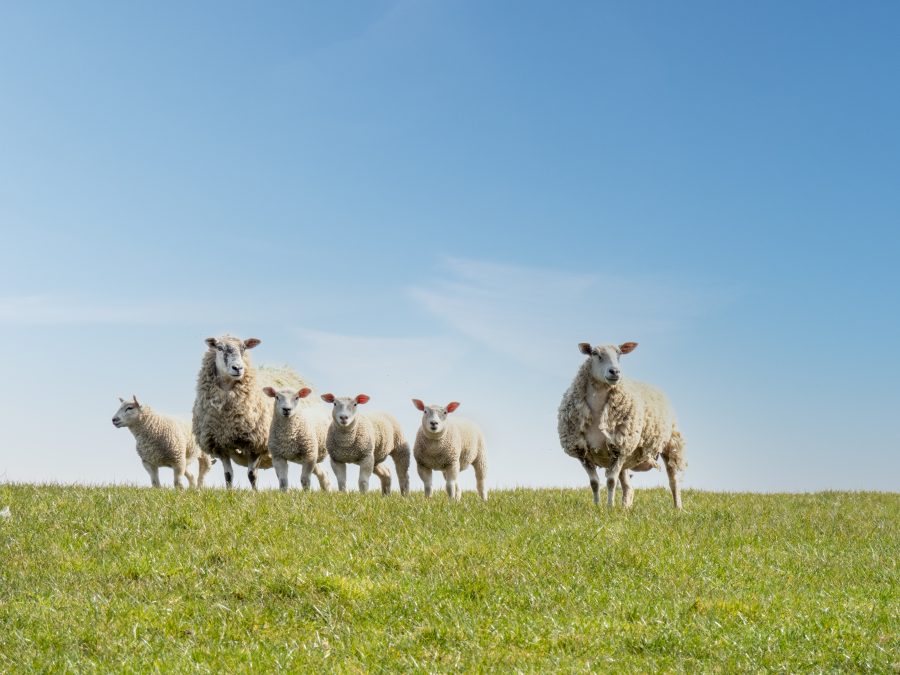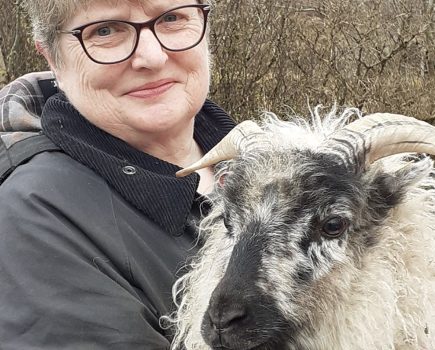The Animal & Plant Health Agency (APHA) reports that bluetongue has been confirmed in a ninth individual animal on a fifth premises within the extended Temporary Control Zone (TCZ) in north east Kent. This is the first finding in sheep, on a mixed cattle and sheep farm.
The TCZ was recently extended to cover the North and East coasts of Kent, after two animals that were, until recently, grazing on a premises just outside the TCZ, also became infected.
Dr Joseph Henry BVMS Cert SHP MRCVS, chair of the Ruminant Health & Welfare (RH&W) bluetongue working group and president of the Sheep Veterinary Society, said: “It’s clear the surveillance program is working, so we must continue to support it.
“It’s in the industry’s interest to get this testing done as quickly as possible so that we can resume normal trade and we really hope farmers help in facilitating this.
“All of the additional confirmed cases have been on holdings within the TCZ that surrounds the original case found near Canterbury, Kent on 11 November – all cases have been or will be humanely culled to minimise any risk of onward transmission,” explains Dr Henry.
“On-going surveillance of all livestock will continue in the newly expanded TCZ, please ensure your animals are registered – it’s never too late to officially register your stock.
“There continues to be no evidence of circulating virus in the UK midge population and with the overall temperature continuing to drop, the risk of midge disease transmission is ever reducing,” says Dr Henry.
Legislation remains in place around any movement of animals into and out of the control zone. Farmers and vets can view the latest licences available and how to apply on the RH&W website bluetongue hub Bluetongue Virus – Ruminant Health & Welfare (ruminanthw.org.uk).
“When applying for a movement licence its recommended to be as prepared as possible by planning and applying ahead of time to minimise any disruption or delay. It is still curial for farmers to beware when buying animals in, take action to report any signs, and always, remain vigilant,” reiterates Dr Henry.
Farmers can access and call the dedicated bluetongue hotline to get advice or ask questions linked to the current situation – call the bluetongue hotline on 024 7771 0386.
In the UK, bluetongue, including BTV-3, is a notifiable disease, so anyone suspecting the disease must take action and report it to the Animal and Plant Health Agency (APHA).
Further information on clinical signs and resources can be found here: https://ruminanthw.org.uk/bluetongue-virus/
More information, including how to spot and report the disease is available on GOV.UK.
Definitive requirements are set out in the published declarations for each disease control zone currently in force. More information is available on GOV.UK.
You can also check if specific areas are in a zone by using the following interactive map.
Picture: Stock image
More news like this can be found in The Country Smallholder magazine. Subscribe here.
For FREE updates from the world of smallholding, sign up for The Country Smallholder newsletter here.
Further reading:
Read more about bluetongue here








